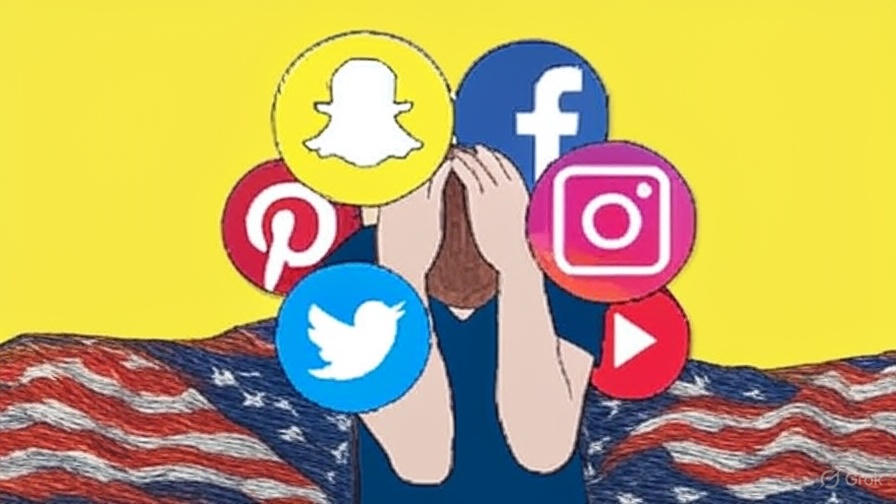NYC Files Lawsuit Against Social Media Over Teen Mental Health
On October 8, 2025, New York City, along with its school district and healthcare system, filed a landmark federal lawsuit in Manhattan against the parent companies of YouTube, TikTok, Instagram/Facebook (Meta), and Snapchat. The 327-page complaint alleges these tech giants created a “public nuisance” by exploiting young users’ psychology to drive engagement, contributing to a youth mental health crisis.
The 327-page complaint claims the companies "created a public nuisance" by exploiting the psychology of young users https://t.co/qJaTXo6k3N
— Dexerto (@Dexerto) October 9, 2025
Key Allegations of the Lawsuit
The city claims that platform algorithms and features intentionally foster compulsive use, resulting in mental health issues like:
- Anxiety and depression
- Sleep deprivation
- Chronic school absenteeism
The complaint cites dangerous viral challenges, including “subway surfing”, which has led to at least 16 teen deaths since 2023. Data shows 77.3% of NYC high school students spend three or more hours daily on screens, a figure rising to 82.1% for girls, straining schools and hospitals.
City officials argue that taxpayers bear the burden of these harms and that tech companies must be held accountable.
Company Responses
- Alphabet (YouTube): Denies allegations, stating that YouTube is primarily a streaming service, not a social network. Highlights safety features like Supervised Experiences.
- Meta, Snap, ByteDance (TikTok): No official statements yet.
Public Reactions and Social Debate
Reactions on X (formerly Twitter) show mixed opinions:
- Some call for parental accountability in monitoring screen time.
- Others highlight broader societal issues, such as urban life constraints and safe recreational spaces.
- Critics question why X itself isn’t included, and some warn about overreach and potential censorship.
The lawsuit aligns with a global trend of holding tech companies responsible, following similar actions in Canada and U.S. Senate hearings.
Broader Context
This lawsuit is one of over 2,000 cases consolidated in Oakland, California, marking NYC as one of the largest plaintiffs. It reflects growing international scrutiny over the addictive nature of social media platforms and their impact on youth mental health.
Implications
If successful, the case could:
- Force damages payment to offset public costs.
- Lead to reforms in algorithmic design targeting youth.
- Set global precedents for social media accountability.
Experts caution that while tech platforms play a role, parenting, urban environment, and mental health infrastructure are also critical factors.
FAQs
Q1: Why is NYC suing these social media companies?
A: The city claims these platforms exploit youth psychology, creating a mental health crisis and straining public resources.
Q2: What are the main platforms involved?
A: YouTube, TikTok, Instagram/Facebook (Meta), and Snapchat.
Q3: What dangers are linked to these platforms?
A: Addiction, anxiety, depression, sleep issues, and dangerous viral challenges like subway surfing.
Q4: Could this lawsuit influence global regulation?
A: Yes, it may set legal precedents affecting tech platforms’ youth engagement worldwide.
Q5: Are parents responsible?
A: Experts say both parental guidance and platform accountability are important.
Opinion
This lawsuit is intellectually significant, highlighting a clash between corporate responsibility and societal wellbeing. While social media companies generate revenue by maximizing engagement, New York City frames the consequences as a public health crisis. The case questions where the line should be drawn between profit-driven design and child safety, and whether governments can enforce regulations to protect youth without stifling technological innovation.
For policymakers, educators, and parents, the case underscores the need for balanced approaches, combining digital literacy, algorithm transparency, and safe recreational alternatives. Its outcome may redefine how societies navigate youth mental health in the digital era.


0 comments